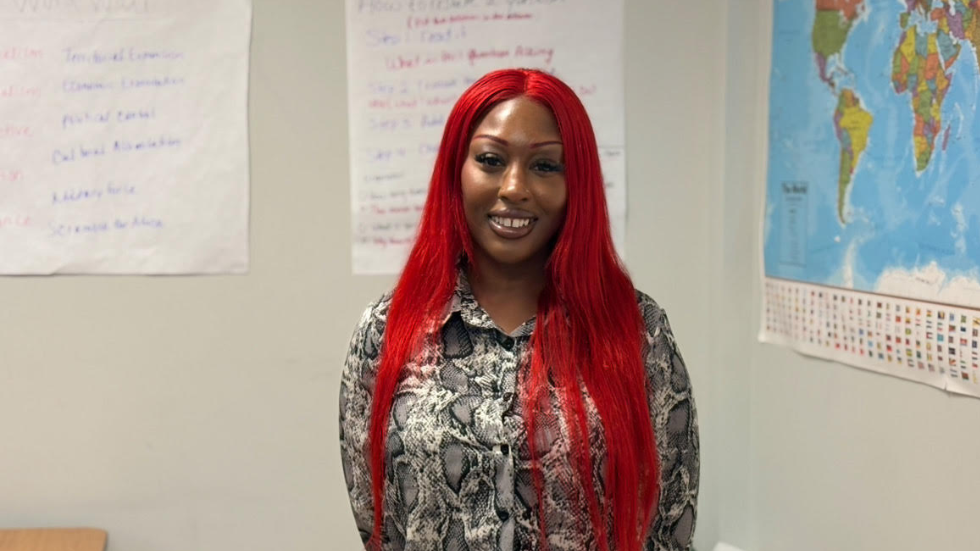Name: Ryan McCray
Hometown: Providence, Rhode Island
Program: MAT (Social Studies)
Education: CCRI, Johnson & Wales (Bachelors of Arts and Sciences)
How did your undergraduate and work experiences before this program inspire you to go into teaching and pursue an MAT degree?
My undergraduate studies and diverse work experiences shaped my decision to pursue teaching and an MAT degree. I’ve worked in various fields—including sales, scheduling, healthcare, and legal work—where I developed strong communication, adaptability, and organizational skills. As a substitute teacher, I witnessed firsthand the profound impact that education has on students, reinforcing my passion for creating a positive and supportive learning environment.
With a background in business and history from Johnson & Wales, I bring a broad perspective to education and a deep commitment to fostering opportunities for all students, especially those facing challenges. The MAT program is equipping me with the skills and knowledge to turn this vision into reality, ensuring that every student has the support they need to succeed.
Where are you doing your student teaching, and what do you like most about the experience there so far?
As a student teacher at Blackstone Academy Charter School (BACS) in Pawtucket, R.I., I have had the privilege of working in a truly student-centered environment. From the moment you step inside, it’s evident that student voices shape the school’s culture, most notably through morning meetings led entirely by student advisory groups.
One of the most rewarding aspects of my experience has been co-teaching the Black Leadership Initiative (BLI), where students engage in deep discussions about identity and build meaningful connections with Black business owners, artists, and community leaders. The sense of community at BACS is remarkable—welcoming, empowering, and deeply committed to student growth.
This experience has reinforced my passion for education and my belief in the transformative power of student leadership.
What has been a highlight of your experience in the MAT program so far?
One of the most rewarding aspects of this experience has been the incredible people I have had the privilege of learning alongside. From professors to cohort members and UEP colleagues, the program is filled with supportive, passionate individuals who are deeply invested in each other’s growth. The relationships I have built have been the highlight of my journey, shaping both my perspective and my practice.
Each class offers the opportunity to engage with diverse viewpoints and lived experiences, broadening my understanding of education and its impact across different communities. Combined with a strong curriculum, this program has given me the confidence and tools to provide an equitable education, especially for students from my own community.
What or who inspired you to become a teacher?
It may sound cliché, but I truly see myself as a lifelong learner. Education is a powerful tool, and I feel fortunate to engage with it every day. I often tell my students that I am learning right alongside them, which makes teaching more than just a role. It becomes a meaningful, shared experience.
Unfortunately, I did not always feel supported or seen in school, and that drives me to create a different experience for my students. Seeing their engagement and excitement in the classroom has been incredibly rewarding. It reaffirms my decision to become an educator and strengthens my commitment to making every student feel valued.
What does educational equity mean to you?
Educational equity is about creating a school community that is inclusive, representative, and connected to the perspectives of students, families, and community leaders. It extends beyond the classroom, ensuring that students have access to real-world learning experiences.
True equity means providing every student with the tools and support they need to develop lifelong skills, regardless of their background or circumstances. When the focus is on meaningful learning rather than what students do or do not have, education becomes a powerful force for empowerment and growth. It also involves creating opportunities for students to see themselves and people like them reflected in the content they are learning, reinforcing their sense of identity, belonging, and possibility.
